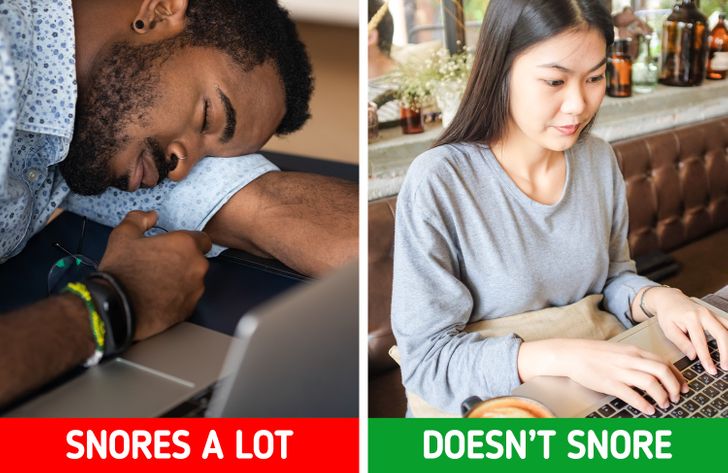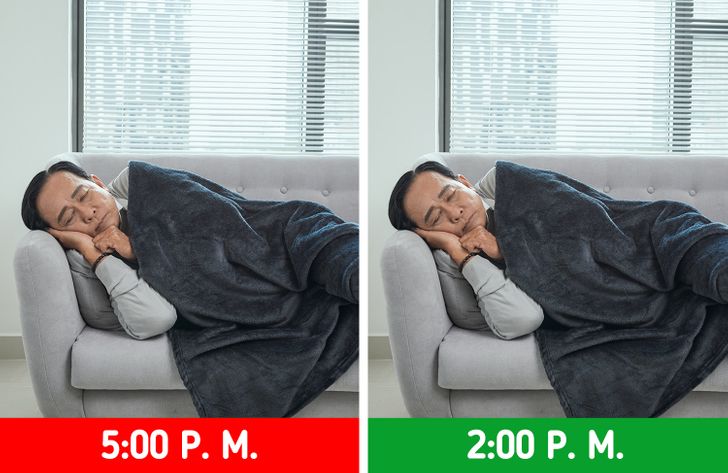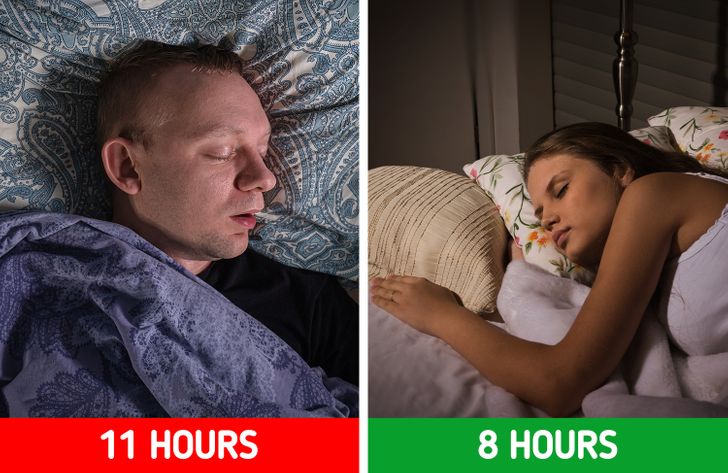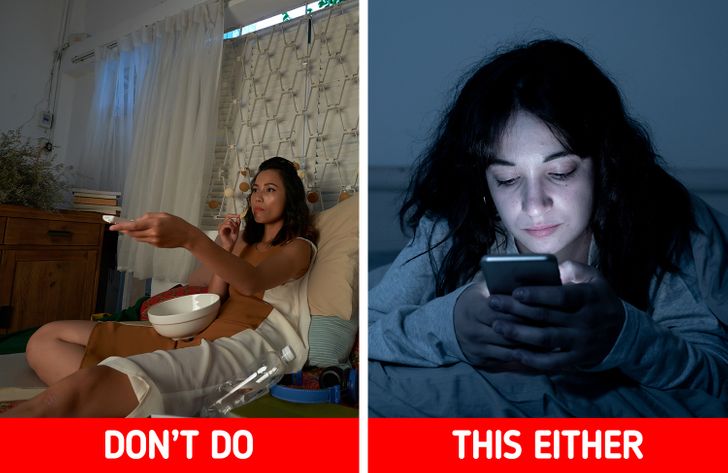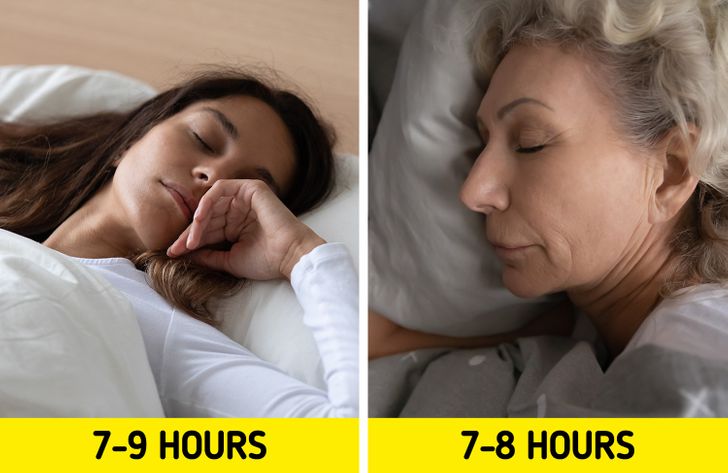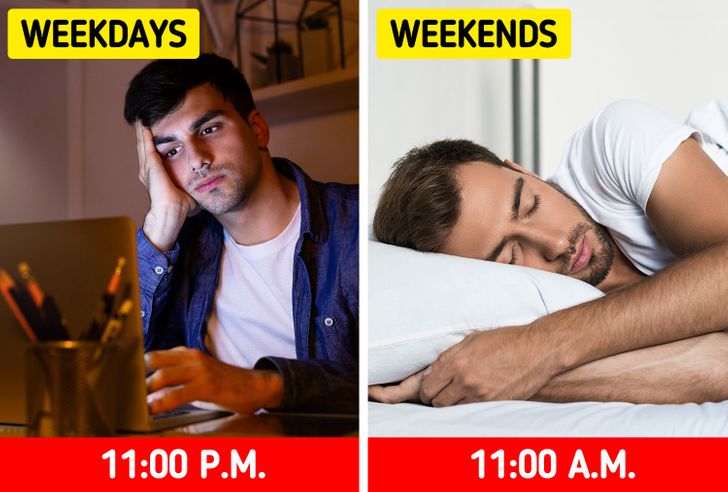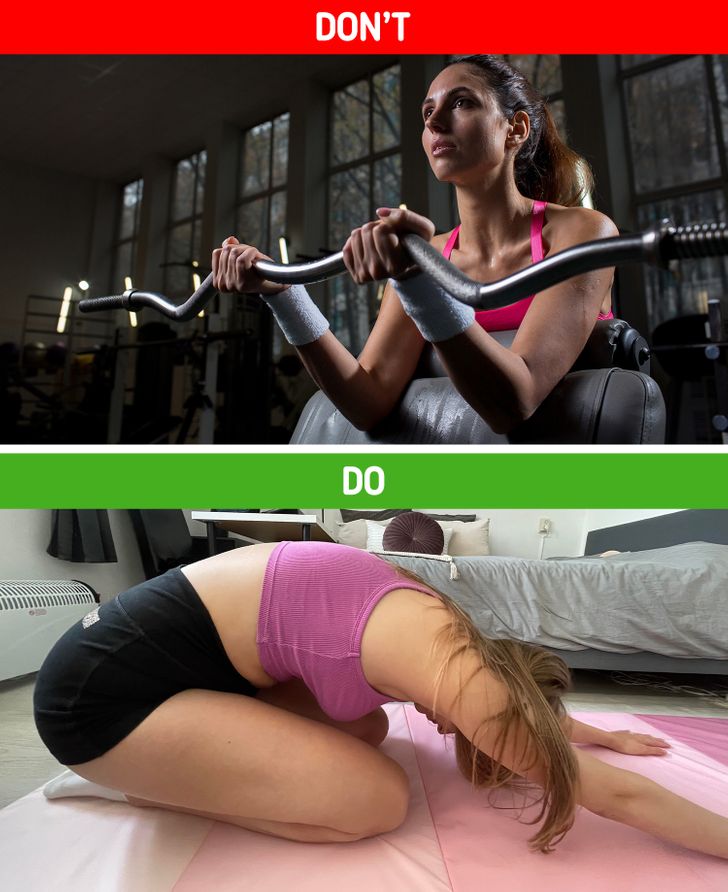Yeah,I would be willing to change some of my sleeping habits for improving daily effectiveness,mood, performance at work or any other activity . Sometimes it is difficult to make any drastic alternations,but it worth to try)
7 Urban Myths About Sleep That We All Thought Were True
Does watching TV in bed before going to sleep help us relax? Does exercising at night harm our rest? These are some myths associated with sleep that sustain the habits of many of us, but they are not entirely true. We believe it is important to debunk them, because when we do not sleep well we can feel tired, we don’t think clearly, and we can spend a lot of time in a bad mood. Sleep, just like any other bodily process, requires our attention since it’s a very important part of our lives.
1. Snoring is common and harmless.
We won’t deny it, it’s a fact: most of us have snored at some point in our lives. That’s of course not an issue. However, when snoring becomes frequent and very loud, it may be a sign that there you’re suffering from an underlying health condition that you need to address as soon as possible. This could be, for example, obstructive sleep apnea. This is a fairly common disorder that happens when your airway is blocked and your breathing gets suddenly interrupted or even paused during sleep causing you to wake up.
A person suffering from apnea clearly will not rest well during night and will most likely feel tired and suffer from excessive sleepiness or drowsiness throughout the next day. This can affect their concentration and thus their ability to perform their daily tasks in an efficient way, and may even be a risk during activities that require full attention, like driving. Apnea and the snoring associated with this condition should be treated by a sleep specialist. However, if you think you suffer from it, there are a few things you can change to nudge your body in the right direction:
✅Maintain a healthy weight.
✅Limit your consumption of alcoholic beverages.
✅Avoid sleeping on your back (because it favors airway obstruction).
2. It’s good to take long naps in the afternoon.
Naps are known to be great allies of people who love sleeping. Not only that, but they actually have wonderful benefits: they can improve your mood, enhance your performance at work or any other activity you need to focus on, help you relax, and make you feel less tired. But this wonderful thing can backfire too. Taking long naps does not cause these desired effects and can, in fact, impair our nightly rest. Experts recommend only taking short naps that are 10-20 minutes long. That should be done before 3 o’clock in the afternoon because the time of day in which you lie down to rest also matters. If you choose to sleep for a few minutes at the end of the day, you may have difficulty falling asleep at night.
3. More sleep is always better.
The question here might actually be what do we mean by “more sleep”? It’s a tricky one. Let’s start with the basics: the amount of hours that each person needs. Granted these may vary from one person to another but specialists are pretty sure that adults should only sleep between 7 and 9 hours a day. Sleeping too much can be a thing and it actually happens when we exceed 9 hours of sleep per night. Doing that can cause headaches and excessive tiredness. It has also been linked to an increased risk of health problems such as weight gain, depression, diabetes, and heart disease.
But if you occasionally stay in bed a little longer, don’t worry too much about it. The only thing you have to do is pay attention and make sure that you don’t sleep more than 9 hours on a regular basis. If you find it a bit too difficult because you love sleeping, try to change your habits. If you think something else might be going on that could be preventing you from sleeping properly ask for medical support. This information is for people over 18 years old, because children and adolescents can and, in most cases, should sleep more.
4. Watching TV in the bedroom relaxes you and helps you fall asleep.
Many of us enjoy lying in bed and watching a good movie. This is one of the greatest pleasures of life, and we’re not about to ruin it for you. However, experts are very clear in the fact that we should draw a line and avoid watching TV before going to sleep. The light and sound stimuli from the magic box send signals to our brain that alter processes in our body. These processes are actually the ones that allow us to feel sleepy and sleep well during the night.
If you want to dig a little deeper into this matter, you should start by knowing that one of these processes starts with a hormone called melatonin. Our body releases melatonin at the end of the day when it notices that the sun is setting and it’s getting dark. It’s its own way of telling us that it’s time to sleep. If, before going to bed, we are exposed to artificial light like that from televisions, its function is altered and does not allow us to rest well. That is why specialists recommend that we not have TV and other screens in the bedroom. What you can do instead is read a book and listen to relaxing music.
5. As we age, we need less sleep.
If you spent some time with your grandparents as a child you might have noticed that they often woke up earlier or more easily than you did. This was maybe the case with your parents too. People are often led to think that as we grow older, we need fewer hours of sleep. But if you take a look at experts’ recommendations on the number of hours adults and elderly people need, it turns out that there is not much difference.
That being said, it is also true that the process of aging can naturally alter the quantity and quality of a person’s sleep. Still, that does not necessarily mean that your body requires fewer hours of sleep to work properly. While an adult between the ages of 18 and 64 needs 7 to 9 hours of sleep, people over 65 should sleep between 7 and 8 hours every night. As you can see, it’s still pretty close to how much any human should rest.
6. We can make up for a lack of sleep on weekends.
Staying awake overnight to work on an assignment from the office or to finish some homework for school may be something that you only do from time to time, and while that’s not great, you won’t have any health problems if you do this. However, it is not advisable to make it a habit. The time that you sleep is important and it should be at night. The lost hours of sleep accumulate and that is why some specialists call this deficit a sleep debt.
They assure that this time cannot be recovered by simply sleeping a few hours more on the weekends, and they say that this would not counteract the negative effects that the constant lack of sleep could cause in the future. While it’s best for your health to avoid going into that debt, consider these tips for gradually regaining your energy if you’ve lost hours of sleep:
✅ Take naps briefly and in the early afternoon.
✅ Set a schedule for going to sleep and waking up, and try to stick to it every day.
✅ If you are not used to sleeping at least 7 hours a night, start adding 15 minutes of sleep until you reach the optimal time.
7. Exercising before bedtime makes it difficult to get a good night’s sleep.
Not all of us enjoy or are able to exercise in the mornings so many people just think that they can do their regular gym routine after work in the evening. Now, you might be wondering if doing that could affect the quality of your sleep. This is a legit question, but researchers are still not entirely sure about it. Specialists think that light to moderate physical activity at around 60 to 90 minutes before bedtime could help you fall asleep faster and promote rest. This means you could practice yoga, walking, light to moderate weights, cycling, and swimming, but all of these should be done without taking things too far.
What we must take into account is that it is recommended to not do high-intensity or very vigorous exercises and to wait at least one hour before going to bed after having practiced any type of physical activity, no matter how intense it was.
Bonus: 6 extra tips for better sleep
If you find it hard to sleep well, you can follow some of the tips offered by the World Sleep Society. We know that changing habits is not that easy, so don’t worry and just start with one at a time:
✅ Set the same daily schedule for going to sleep and waking up.
✅ Avoid eating heavy, spicy, and sugary foods for 4 hours before going to bed.
✅ Avoid caffeinated beverages, like coffee or soft drinks, 6 hours before bedtime.
✅ Keep your bedroom ventilated and at a good temperature, neither too cold nor too hot.
✅ Leave your bed as a space that is only for sleeping, not for work or recreation.
✅ Do not drink alcoholic beverages within 4 hours of going to bed.
Sleeping well is very pleasant and energizing. Would you be willing to change some habits to improve your sleep? Which one do you think you should start with?
Comments
Related Reads
14 Times People Cared About Others and Made Their Day Brighter

16 Double Standards That Really Annoy Us

22 Images That Deceive Your Eyes

25 Animals Whose Vivid Emotions Would Even Make Gloomy Gus Smile

11 Celebrities With Weird Habits and Rituals That Can Make You Grin in Wonderment

20+ Rare Photos Revealing What Celebrities Were Like as Children

When My Husband’s Cruelty Peaked, Help Arrived Unexpectedly

My Fiancé Wants a Joint Account, but I Don’t Want to Lose Control Over My Money

I Didn’t Tell My Husband’s Family I Spoke Their Language

15 True Stories Where Life Threw a Curveball

12 People Whose Life Decisions Hit Like a Train, but It Was Too Late to Reverse Them

8 People Who Experienced Eerie Things That Are Too Hard to Grasp

